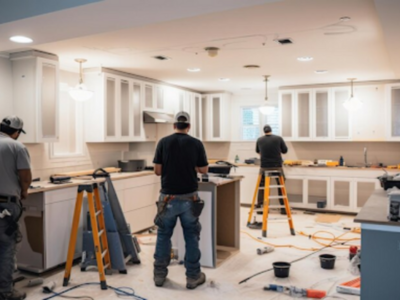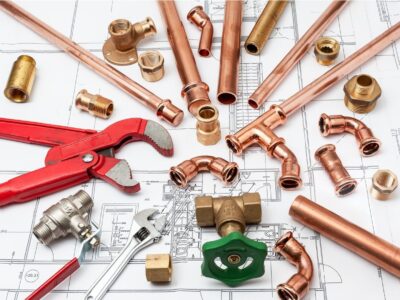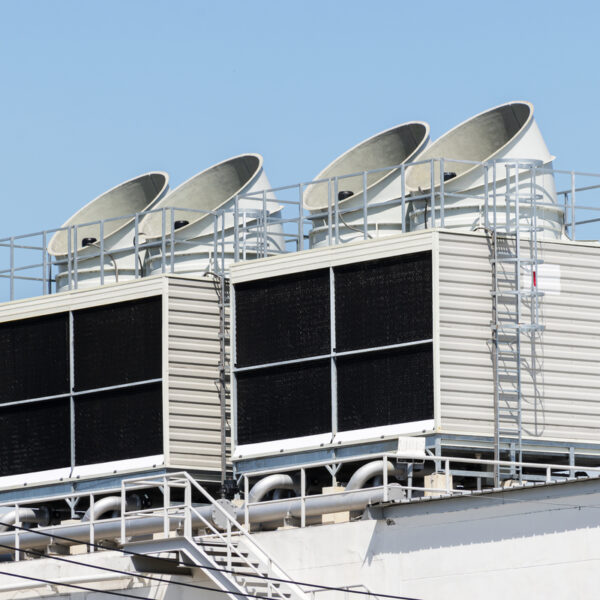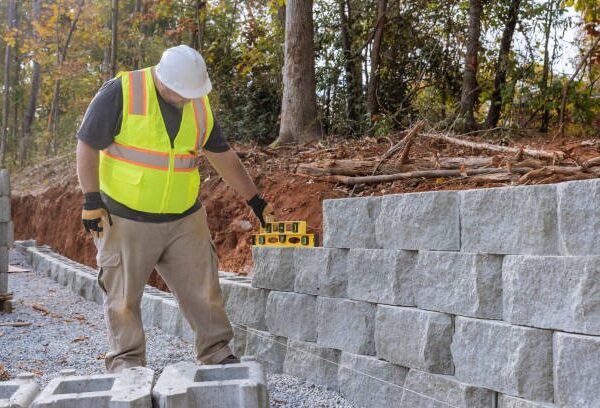
Heat pump ducted systems have revolutionized the way we heat and cool our homes. They offer a comprehensive solution that combines efficiency, comfort, and environmental friendliness. In this detailed guide, we’ll delve deeper into the workings of heat pump ducted systems, their numerous benefits, key considerations before installation, tips for optimal performance, comparison with other systems, and debunking common misconceptions.
1. Introduction to Heat Pump Ducted Systems
Heat pump ducted systems stand out as a versatile HVAC solution that caters to both heating and cooling needs in residential and commercial settings. By leveraging the principles of thermodynamics, these systems extract heat from the surrounding air during winter and dissipate heat during summer, providing year-round comfort.
2. Understanding How Heat Pump Ducted Systems Work
Components of a Ducted Heat Pump System
A typical ducted heat pump system comprises an outdoor unit, indoor unit, refrigerant lines, and a network of ducts. The outdoor unit houses the compressor and condenser coil, while the indoor unit contains the evaporator coil and blower fan. Refrigerant circulates between these components, absorbing and releasing heat as needed.
Heat Pump Operation Process
During the heating mode, the outdoor unit absorbs heat from the outdoor air and transfers it indoors via the refrigerant lines. The indoor unit then releases this heat into the living space. In the cooling mode, the process is reversed, with heat from the indoor air being expelled outdoors.
3. Benefits of Heat Pump Ducted Systems
Energy Efficiency
One of the most significant advantages of ducted heat pump systems is their high energy efficiency. Unlike traditional heating systems that rely on combustion, heat pumps simply move heat from one place to another, consuming less energy in the process. This results in lower utility bills and reduced carbon emissions, making ducted heat pump systems environmentally friendly.
Whole-House Heating and Cooling
Ducted systems distribute conditioned air evenly throughout the entire home, eliminating temperature disparities and ensuring consistent comfort in every room. This eliminates the need for additional heating or cooling units in individual rooms, reducing clutter and improving aesthetics.
Quiet Operation
Modern ducted heat pump systems are designed to operate quietly, making them suitable for noise-sensitive environments such as bedrooms and offices. The noise generated by the outdoor unit is minimal and often masked by ambient sounds, ensuring a peaceful indoor environment.
Improved Indoor Air Quality
By filtering and purifying the air as it circulates through the ductwork, heat pump systems can significantly improve indoor air quality, reducing allergens, dust, and pollutants. This is especially beneficial for individuals with respiratory issues or allergies, as it creates a healthier and more comfortable living environment.
4. Factors to Consider Before Installing a Ducted Heat Pump System
Home Size and Layout
The size and layout of the home play a crucial role in determining the appropriate size and configuration of the ducted system. Factors such as square footage, ceiling height, and insulation levels should be taken into account. A professional HVAC contractor can conduct a thorough assessment to ensure the system meets the specific heating and cooling requirements of the home.
Climate Considerations
While heat pump ducted systems are effective in most climates, extreme temperatures can impact their performance. In regions with prolonged periods of extreme cold or heat, supplementary heating or cooling may be required. Homeowners should consider their local climate when selecting a heat pump system and opt for models with variable-speed compressors or auxiliary heating options for enhanced performance in extreme conditions.
Installation Costs
The initial cost of installing a ducted heat pump system can vary depending on factors such as system size, complexity of installation, and local labor rates. However, the long-term energy savings and comfort benefits often outweigh the upfront investment. Homeowners should obtain multiple quotes from reputable HVAC contractors and consider the lifetime cost of ownership when evaluating the affordability of ducted heat pump systems.
Maintenance Requirements
Regular maintenance is essential for ensuring the optimal performance and longevity of a ducted heat pump system. Tasks such as filter replacement, coil cleaning, and refrigerant level checks should be performed by a qualified technician at least once a year. Additionally, homeowners should schedule annual inspections to identify and address any potential issues before they escalate into costly repairs. Adhering to a proactive maintenance schedule can extend the lifespan of the system and maximize energy efficiency.
5. Tips for Maximizing Efficiency and Performance
Proper System Sizing
An oversized or undersized system can lead to inefficient operation and higher energy bills. It’s essential to work with an experienced HVAC contractor who can accurately assess the heating and cooling load of the home and recommend the appropriate system size. Factors such as insulation levels, air leakage, and solar gain should be taken into account to ensure the system is properly sized for optimal performance.
Regular Maintenance
Routine maintenance helps to keep the system running smoothly and efficiently. This includes cleaning or replacing filters, inspecting ductwork for leaks, and lubricating moving parts as needed. Homeowners should follow the manufacturer’s recommended maintenance schedule and address any issues promptly to prevent costly repairs or premature system failure. Additionally, scheduling professional maintenance annually can identify and resolve potential problems before they impact system performance or indoor comfort.
Use of Zoning Controls
Zoning allows homeowners to divide their home into separate temperature zones, providing customized comfort and energy savings. By only heating or cooling occupied areas, zoning controls can help reduce energy waste and improve overall efficiency. Homeowners can adjust the temperature settings in each zone based on occupancy patterns and personal preferences, optimizing comfort while minimizing energy consumption. Additionally, zoning controls can extend the lifespan of the system by reducing the frequency of cycling and minimizing wear and tear on components.
6. Comparison with Other Heating and Cooling Systems
Ductless Mini-Splits
Ductless mini-split systems offer flexibility and easy installation but may not be suitable for larger homes or whole-house heating and cooling. While ductless systems are ideal for retrofitting older homes or room additions, they require individual indoor units for each zone, which can be less aesthetically pleasing and more expensive than ducted systems. Additionally, ductless mini-splits may not provide the same level of comfort or energy efficiency as ducted systems, especially in homes with multiple floors or complex layouts.
Furnaces and Air Conditioners
Traditional furnaces and air conditioners require separate units for heating and cooling, whereas ducted heat pump systems offer both functions in one integrated system, making them more space-efficient and cost-effective. Furnaces rely on combustion to generate heat, while air conditioners use refrigerant to cool the air, both of which consume more energy and produce greenhouse gas emissions. In contrast, heat pumps transfer heat between indoor and outdoor environments, using electricity more efficiently and producing fewer emissions. Additionally, ducted heat pump systems can be paired with high-efficiency air filters and UV germicidal lights to improve indoor air quality, further enhancing the comfort and health of occupants.
7. Common Misconceptions about Ducted Heat Pump Systems
Cost of Installation
While the upfront cost of installing a ducted heat pump system may be higher than other heating and cooling options, the long-term energy savings and comfort benefits can often offset the initial investment. Homeowners should consider the lifetime cost of ownership, including energy savings, maintenance expenses, and potential rebates or incentives, when evaluating the affordability of ducted heat pump systems. Additionally, financing options and flexible payment plans may be available to help offset the upfront cost and make the investment more manageable.
Effectiveness in Extreme Climates
Modern ducted heat pump systems are designed to operate efficiently in a wide range of climates, including regions with extreme temperatures. Supplemental heating or cooling may be required in exceptionally cold or hot conditions, but overall, ducted heat pump systems offer reliable performance year-round. Advanced features such as variable-speed compressors, dual-fuel capability, and smart controls enhance the system’s ability to maintain indoor comfort in extreme conditions while maximizing energy efficiency. Homeowners in regions with harsh climates should consult with a qualified HVAC contractor to select a heat pump system with the appropriate specifications and features for their specific needs.
8. Conclusion
Heat pump ducted systems offer a comprehensive solution for heating and cooling homes, combining energy efficiency, comfort, and convenience. By understanding how these systems work, considering key factors before installation, and following maintenance best practices, homeowners can enjoy reliable performance and significant cost savings over time. With proper sizing, regular maintenance, and advanced features such as zoning controls, ducted heat pump systems can provide superior comfort and energy efficiency while reducing environmental impact and operating costs.
FAQs
Are heat pump ducted systems suitable for all climates, including extremely cold regions?
Yes, modern ducted heat pump systems are designed to operate efficiently in a wide range of climates, including regions with extreme temperatures. Supplemental heating or cooling may be required in exceptionally cold or hot conditions, but overall, ducted heat pump systems offer reliable performance year-round.
How often should I schedule maintenance for my ducted heat pump system, and what does it involve?
Homeowners should schedule maintenance for their ducted heat pump system at least once a year to ensure optimal performance and longevity. Maintenance tasks typically include filter replacement, coil cleaning, refrigerant level checks, and inspection of ductwork for leaks. Hiring a qualified technician to perform annual maintenance can identify and address any potential issues before they escalate into costly repairs or system failures.
Can ducted heat pump systems be retrofitted into existing homes with traditional heating and cooling systems?
Yes, ducted heat pump systems can be retrofitted into existing homes with traditional heating and cooling systems. However, the feasibility and cost of retrofitting will depend on factors such as the layout of the home, existing ductwork, and electrical infrastructure. Homeowners should consult with a qualified HVAC contractor to assess their home’s suitability for a ducted heat pump system and determine the best approach for installation.
Are there any government incentives or rebates available for installing ducted heat pump systems?
Yes, there are often government incentives, rebates, and tax credits available for installing energy-efficient heating and cooling systems, including ducted heat pump systems. These incentives aim to encourage homeowners to invest in energy-efficient upgrades that reduce energy consumption and lower greenhouse gas emissions. Homeowners should check with their local utility company or government agencies to learn about available incentives and eligibility requirements.
What are the typical lifespan and warranty coverage for ducted heat pump systems, and how can I ensure longevity?
The typical lifespan of a ducted heat pump system is approximately 15 to 20 years, depending on factors such as usage, maintenance, and environmental conditions. Most manufacturers offer warranties ranging from 5 to 10 years on parts and labor, with extended warranties available for additional coverage. Homeowners can ensure the longevity of their ducted heat pump system by following a proactive maintenance schedule, hiring qualified technicians for repairs and inspections, and investing in high-quality equipment from reputable manufacturers.






